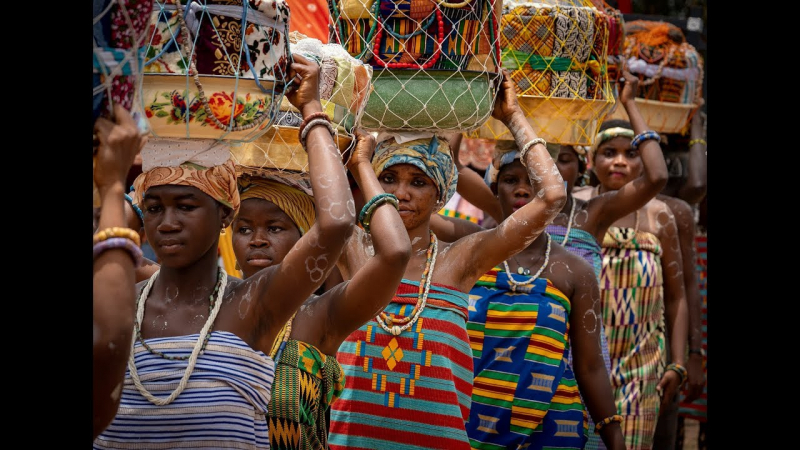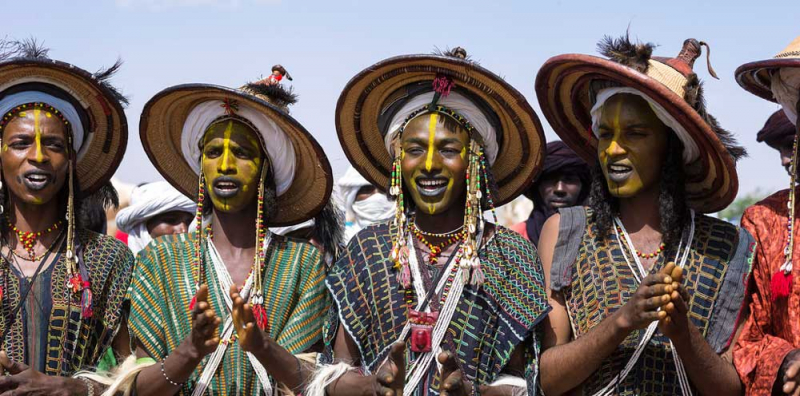Holidays and Festivals
Ghana's centuries-old traditions, combined with the diversity of its distinct ethnic groups, have resulted in a rich culture that is the magnificent legacy of modern Ghana. The traditions of their forefathers are still an important part of Ghanaians' daily lives. Customary leaders have historically wielded power over tribal and family matters, and customary lands are an important part of the heritage.
Special rites and rituals mark significant life events. Family ceremonies mark child naming, puberty initiations, marriage, and death, while seasonal festivals bring entire communities or clans together in spectacular fashion. A belief in the Supreme Being, life after death, and the nearness of deceased ancestors is a common feature. Festivals also commemorate past events and usher in a new season with optimism and confidence.
Traditional fetish shrines, which are sometimes hidden but more often displayed, are important places of worship and traditional healing, as well as an important part of traditional life. The Posuban shrines, which are unique to the Fante communities of Southern Ghana, are especially significant. Religious centers for Fante warrior organizations are fanciful buildings lavishly decorated with folk art.
Many festivals include thrilling durbars of chiefs, when tribal leaders and Queen Mothers process in decorated palanquins, shaded by traditional umbrellas, and supported by drummers and warrior discharging ancient muskets. In Ashanti, the Adae and Akwasidae festivals vividly bring the splendour of the Asante kingdom to life, when the Ashantehene King, adorned in all his gold regalia, comes out to receive the homage of his people. The Asantehenes dancers, praise-singers and horn-blowers surround the King and his procession, in a never-to-be-forgotten spectacle. The dates of many festivals are determined by traditional calendars, often decided close to the event.












